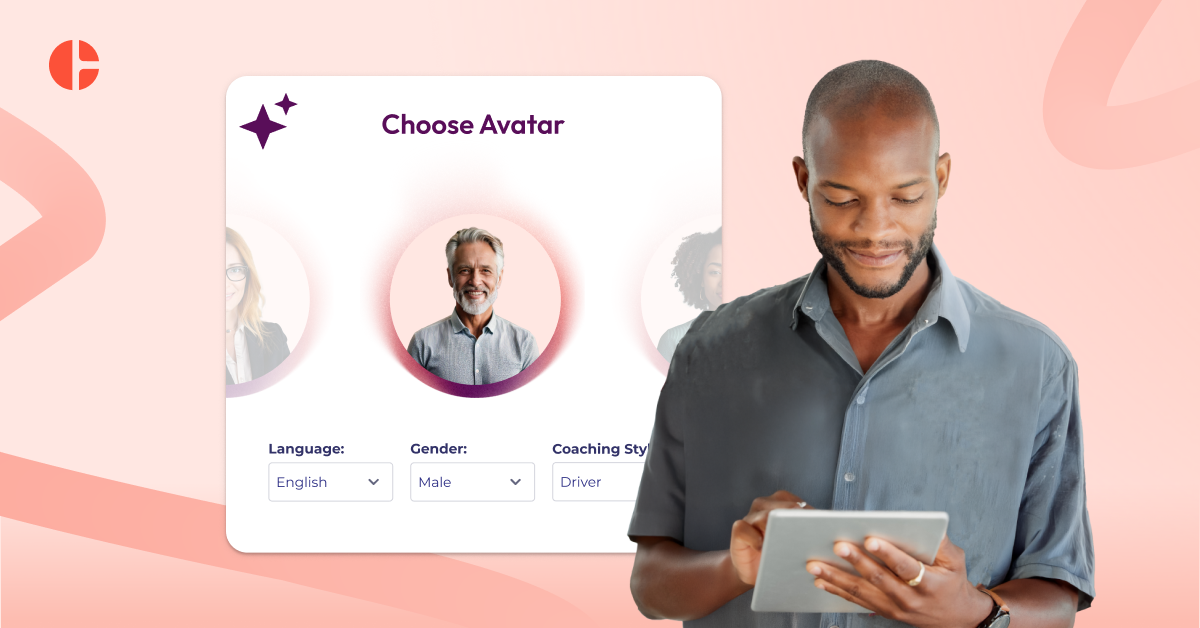Leadership’s Key Role in the Success of Employee Retention Programs

In these economically uncertain times, employee retention programs are central to maintaining a thriving, resilient business. High employee turnover has a substantial financial impact with some estimates putting the cost of replacing an employee as high as two times their annual salary. Furthermore, turnover acts as an invisible drain on company resources with lost institutional knowledge and long-term harm to company cohesion and team dynamics.Employee retention programs not only reduce the high costs of turnover, they enhance employee engagement, which has been linked to 23% higher profitability and 18% higher productivity.Nevertheless, employee retention programs tend to take a backseat in a challenging business environment, where leaders are often compelled to prioritize productivity and revenue. While executives and line managers focus on the hustle, employees are in danger of feeling overlooked and undervalued...and eventually jumping ship.In this article, we’ll look closely at leadership’s role in employee retention, from C-suite to middle managers. You’ll learn what makes for a successful employee retention program, why human connection is at the heart of it, and how to help ensure leaders find time in their busy schedules for the conversations that really matter.
What are Employee Retention Programs?
Employee retention programs are structured strategies and initiatives designed to keep employees engaged, satisfied, and committed to an organization over the long term. These programs typically include a combination of career development opportunities, competitive compensation and benefits, recognition and rewards systems, work-life balance initiatives and efforts to build a thriving workplace culture of trust and engagement.In today’s competitive job market where skilled talent is scarce, effective retention strategies are crucial for attracting and keeping top performers. And there are clear rewards: organizations with strong retention programs often experience better customer satisfaction, productivity, innovation, and profitability, making employee retention programs a cornerstone of sustainable business success.
The 7 Pillars of an Effective Employee Retention Program
Just what makes for an effective employee retention strategy?Key factors in employee retention are strategies and practices that address employee needs, foster engagement, and build loyalty:
- Clear Communication and FeedbackOpen, consistent communication between employees and management is vital. Regular feedback, one-on-one meetings, and employee surveys help build trust and ensure employees feel heard and valued.
- Career Development and Growth OpportunitiesOffering opportunities for people to learn new skills, advance in their careers, and achieve professional goals shows a commitment to employees’ long-term success, encouraging retention.
- Recognition and RewardsAcknowledging employee contributions through rewards, incentives, and public recognition boosts morale and motivates employees to stay engaged and committed.
- Work-Life Balance and FlexibilityProviding options such as flexible hours, remote work, and mental health days help employees balance personal and professional responsibilities, reducing burnout and turnover.
- Competitive Compensation and BenefitsEnsuring salaries, bonuses, and benefits align with market standards shows employees they are valued, while perks like personalized coaching, pension contributions, and subsidized commuting costs contribute to job satisfaction.
- Positive Workplace CultureA supportive, inclusive, and collaborative environment encourages employees to build strong relationships and feel a sense of belonging.
- Leadership and Management EffectivenessStrong, empathetic leadership that prioritizes employee wellbeing and professional development – for example via transformational leadership – plays a critical role in keeping employees engaged and satisfied.
In embracing these pillars, organizations can create a supportive and engaging work environment that reduces turnover and drives long-term success.
Leadership’s Key Role in Successful Retention
Looking at the pillars above, it’s clear that leadership – from the top executives down to line managers – are central to the success of employee retention programs. Leaders must be the ones to initiate and maintain the meaningful conversations and connections that fuel the qualitative workplace experiences that bring employee retention programs to life.
Lower Management’s Role in Retention
Often serving as the primary point of contact between employees and the organization, line managers are uniquely positioned to build strong relationships, provide regular feedback, and address individual concerns promptly.Line managers who cultivate open communication, recognize achievements, and support professional growth create an environment where employees feel valued and motivated.However, research shows that most people find their managers to be far from ideal: LinkedIn’s 2024 Workforce Confidence survey reported that seven in 10 U.S. workers said they would leave a job if they had a bad manager, while a Gallup poll found that a whopping one in two U.S. employees have left a job to get away from a manager.
The C-Level’s Role in Retention
Maintaining good relationships with employees is as essential for executive leadership as it is for line managers. Leaders who prioritize empathy, inclusivity, and recognition help build a sense of belonging and commitment, which are critical to reducing turnover by shaping a strong workplace culture, fostering engagement, and establishing an environment where employees feel valued, safe, and supported.In contrast, McKinsey has found that “uncaring and uninspiring” leaders are a major reason people quit their jobs and relationships with both bosses and supervisors are the top factor in employees' job satisfaction.On the practical level, senior leaders are central to educating managers about their key role in retention and demanding accountability – for example by making workplace relationship evaluations part of manager development and performance reviews.
Prioritizing Your People
If no investment is made into the behaviors and initiatives that sustain company culture, engagement and loyalty, leaders at every level may well discover they are slowly bleeding away their company’s top talent.Line managers often struggle to find time to cultivate relationships with employees due to the competing demands of their roles, which include overseeing day-to-day operations, meeting performance targets, and addressing urgent business needs. In a recent survey by McKinsey, managers reported spending one full day out of every week (18% of their time) on administrative work and almost three-quarters of their time on tasks not directly related to talent management.What’s more, line managers may lack training or guidance on how to balance relationship-building with their other responsibilities. This can lead to missed opportunities for fostering trust, collaboration, and open communication – crucial to employee satisfaction and retention.Likewise, with their schedules dominated by meetings, decision-making, and setting strategic direction, and external commitments such as stakeholder engagement and market positioning, top executives can find it challenging to find time for cultivating relationships with employees. They may even feel disconnected from the workforce due to frequent travel and the organizational hierarchy, making it even harder to establish and maintain personal connections.Despite these challenges, there’s no way around it: fostering relationships is essential for building trust, aligning employees with the company’s vision, and creating a positive workplace culture that bolsters retention.Thankfully, executive coaching can help line managers and leadership overcome these hurdles in a number of practical ways…
How Executive Coaching Fosters Employee Retention
Executive coaching is a personalized, results-driven development tool designed to equip leaders with the skills, insights, and resilience needed to excel in complex situations. Unlike traditional training programs, executive coaching is tailored to each leader’s unique challenges and goals.Executive coaching can help leaders implement employee retention programs by equipping them with the qualities, awareness, and strategies needed to foster a supportive and engaging workplace culture.Through personalized guidance, executive coaches assist leaders in identifying gaps in their leadership style that may be hindering employee satisfaction and retention. Coaching also helps leaders enhance critical skills such as communication, empathy, and decision-making – essential for addressing employee needs effectively.Working with their coach, leaders can develop tailored retention strategies that align with the organization's goals and employee expectations, such as creating opportunities for career growth, improving recognition and communication practices, and fostering work-life balance.
In a nutshell, leadership coaching…
…helps identify and solve issues
Executive coaching helps leaders better understand the root causes of turnover in their organizations and design proactive solutions to address them.
…ensures progress is made
Coaches provide accountability and ongoing support to ensure leaders stay focused on long-term retention goals, even amidst other business priorities.
Key Benefits of Executive Coaching in Employee Retention Programs
1. Enhanced Emotional Intelligence (EQ)
Executive coaching supports leaders in developing emotional intelligence, enabling them to better understand and manage their own emotions while empathizing with the challenges their teams encounter. This heightened emotional awareness empowers leaders to respond more thoughtfully to situations, creating a supportive atmosphere where employees feel recognized, heard, and appreciated.
2. Improved Communication and Transparency
Effective and transparent communication is essential for fostering a strong company culture. In its absence, rumors and uncertainty can quickly take hold, undermining trust and engagement. Through executive coaching, leaders gain the tools to communicate more clearly, reduce misunderstandings, align their teams with the organization’s vision, and maintain trust, even during periods of uncertainty.
3. Increased Employee Loyalty
Employees who see their leaders embracing personal development through coaching are inspired to stay longer, knowing the organization has a commitment to growth and development at every level.
4. Strengthened Team Cohesion and Morale
Executive coaching helps leaders cultivate and sustain team cohesion by promoting a culture of collaboration and mutual respect. Coaches assist leaders in proactively addressing morale concerns, minimizing turnover risks, and retaining top talent.
Conclusion
According to research, 77% of voluntary turnover is preventable. It’s clear from the research that much comes down to the capabilities and personal investment at all levels of leadership.Leaders and managers are key to the success of employee retention programs because they are key to the culture: fostering a positive work environment, building healthy manager-employee relationships, promoting personal growth, recognizing achievements, and providing necessary support.Even the most highly successful leaders have potential to grow through targeted coaching, deepening their self-awareness and further cultivating the skills to inspire, empower, and retain their talent to keep their business thriving.When our people thrive, our organizations thrive.
FAQ
Unlike content-first platforms or one-size-fits-all solutions, CoachHub combines global scalability, measurable outcomes, and coaching tailored for regulated, performance-driven environments. We're not just here to train, we partner to transform.
Yes. Coaching builds inclusive leadership, empathy, and adaptability. It equips managers to lead multi-generational teams and align diverse expectations across seniority levels and skill sets.
By focusing on resilience and mindset shifts. Our coaching solutions give managers and teams the tools to stay energized and engaged in high-pressure, regulated environments. This helps them maintain clarity, sustain performance, and adapt confidently through continuous change.




.svg)


.svg)





.png)



